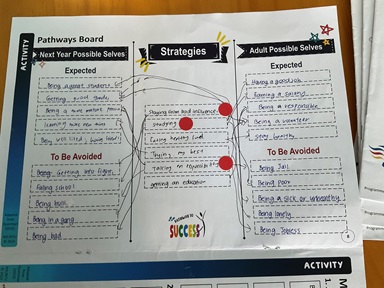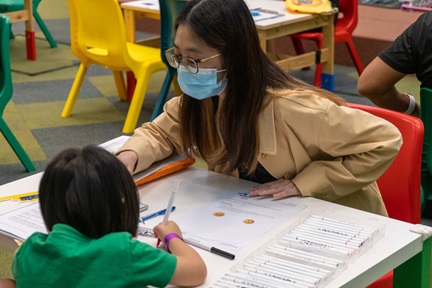Enhancing Engagement in Blended Synchronous Learning
OER 11/21 WQY - Promoting and Monitoring the Cognitive Engagement of Online Students in the Blended Synchronous Learning Environment
Project Team
PI: Associate Professor Wang Qiyun, LSA, NIE
Co-PI: Associate Professor Quek Choon Lang, Gwendoline, LSA, NIE
Co-PI: Assistant Professor Wen Yun, LSA, NIE
Project Description
Blended synchronous learning (BSL) is an instructional approach that allows online students to participate in classroom learning activities at geographically separated locations. It is typically in the form of real-time video conferencing at the comfort of students’ homes. BSL has shown many educational benefits like flexibility and convenience of learning. However, online students are often harder to be engaged, and their engagement levels are lower when compared to onsite students. These are attributed by perceived transactional distance and missing social cues through the virtual platform. It is, therefore, crucial for researchers to identify strategies that can promote, sustain, and monitor the engagement of online students in the BSL environment.
This study adopts the education design research approach and has completed four iterations of design, implementation, and formative evaluation, from 2021 to 2024. Identified effective strategies that can enhance students’ engagement include frequent instructor-learner interactions, teaching assistant support, and online learner’s facilitation in group discussion. The study also uses some strategies to monitor online students’ engagement. The strategies include lesson observations, continuous e-assessment, and facial emotion recognition analysis (FERA). Participants are mainly Masters’ students at NIE. The research has published several journal papers and conference articles over the years.
Project Implications
BSL is a highly practical approach for learners who cannot be present in the physical classroom, particularly working adults with life or work commitments, family care, and health conditions. Thus, it is imperative for instructors to make learning more accessible, flexible, and engaging to meet their diverse needs.
Recommendations for practitioners include:
- Preparing the venue before the start of a BSL session
- Involving a teaching assistant in the classroom to facilitate communication between online learners and the instructor
- Frequently interacting with the online learners
- Designing interactive learning activities
- Organising group discussion led and facilitated by the online learner
Resources
Our research website contains a detailed explanation of our project, a list of relevant publications, and information about our PI and Co-PIs.
Invited Talk
- Monitoring Student Engagement in Synchronous Online Learning, LSA Colloquium 2024
Selected Articles
- Wang, Q. (2024). Engaging Online Students in Blended Synchronous Learning: An Exploratory Study. The International Academic Forum.
- Wang, Q., & Huang, Q. (2023). Engaging online learners in blended synchronous learning: A systematic literature review. IEEE Transactions on Learning Technologies, 17, 594-607.
- Wang, Q., Wen, Y., & Quek, C. L. (2023). Engaging learners in synchronous online learning. Education and Information Technologies, 28(4), 4429-4452.






.tmb-listing.jpg?Culture=en&sfvrsn=b0306905_1)